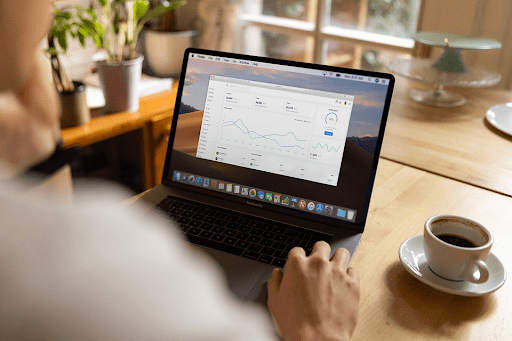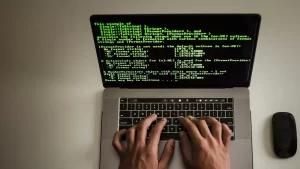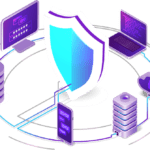
Now that most countries are beginning to come out of the pandemic we can look back and see the real impact that it had on society. One of the big changes that everyone had to get accustomed to as being part of the remote workforce. When it comes to cyberattacks Some people like working from home because of the freedom it gives you and the time that it saves on commuting. But on the other hand, many people struggled to work from home. According to Forbes, 45% of people that worked from home said they felt that they were less mentally healthy while working from home. 97% of people said that vacation days were important for recharging even though they were working from home, which in theory should be more relaxing than going to work. In this article, we are going to discuss how the remote workforce has affected the cybersecurity industry.
Cybersecurity implications
With a remote workforce, there was an increase in the effectiveness of phishing attacks. One study found that 47% of people will fall for a phishing scam when working from home. Another important implication that was reported by Deloitte is that the average cost of a data breach caused by working from home is roughly $137,000. Before the pandemic, only 20% of cyber attacks were previously unseen malware but during the pandemic, this number rose to roughly 35%.
Mental Health
As mentioned above roughly 45% of people feel that they are less mentally healthy while working from home. This makes sense when you consider that people need social interaction and when you’re working from home, away from people and in the same space every day, it can be depressing for some people.
Tips for Working at Home
1) Get a home office
Staying focused and being productive is difficult when you’re working at home surrounded by distractions. One way to do this is to have a dedicated home office. Also, if you have a dedicated home office space you can deduct a portion of your mortgage or rent in tax time. The amount you can deduct is directly related to the portion of your home that is used as a home office. I would suggest hiring a Professional Organizer that can help you set up a good home office in your house to be more productive and then during tax time you can use an accounting service to get more tax deductions than you would if you didn’t have a home office.
2) Get more sunlight
Several studies show that getting sunlight is an excellent way to stay healthy and fight off depression. When we get sunlight our bodies naturally produce vitamin D and that helps out the body to have healthy and stronger bones, blood cells, and immune systems. Sunlight has also been proven to reduce blood pressure, reduce cancer risk and improve your sleep quality.
3) Workout Regularly
Working out is a great way to fight off depression and increase cognitive ability. Studies show that working out can fight off mild-moderate depression as effectively as antidepressant medication. A study by Harvard T.H. Chan School of Public Health found that running for 15 minutes a day or walking for an hour reduces the risk of major depression by 26%.
How to get more free content
If you like this article and would like to read more of our content for cybersecurity insights, tips and tricks feel free to follow us on our social media. If you’re a struggling business owner who needs help in assessing their business’s cybersecurity posture feel free to take advantage of our free introductory assessment and we’ll help you figure out a game plan for keeping your company safe.






